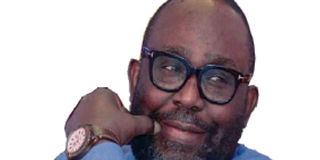Prime
What Muhoozi said, and Museveni’s southern front

The ill-fated and shockingly violence-marred 2021 election is tomorrow. In the heat that it has generated, two weeks ago, First Son Lt Gen Muhoozi Kainerugaba, the commander of the Special Forces, put his foot in it.
In a post on Twitter that caused outrage, forcing him to delete it, Muhoozi tripped in his choice of words to criticise National Unity Platform (NUP) party candidate Robert Kyagulanyi (Bobi Wine).
Bobi Wine, who has given President Yoweri Museveni sleepless nights in these campaigns, was given the name “Musinguzi” (winner, or even hero) while campaigning in Muhoozi’s home region, Ankole.
Muhoozi weighed into Bobi Wine, saying
“Ngu ‘Musinguzi’? Mbwenu ogu akasingura ki? [so-called winner? What has he ever won/accomplished? – Daily Monitor translation]”, adding; “This is an insult not only against Banyankole, but against all the tribes of western Uganda.”
Muhoozi was denounced as a crass tribalist, and for getting embroiled in partisan politics in ways a military officer shouldn’t. Many from western Uganda distanced themselves from him.
With the hashtag #SayNoToTribalism trending, Muhoozi cut his losses and run. He probably discovered that talking tribe, is up there with religion and in-laws. There’s almost nothing you can say that will come out right. If you want to talk religion and in-laws, you are better off backbiting them.
Yet, for all the trouble he got into, Muhoozi was right in the broad sense that people can have different views of things like heroism and accomplishment, based on their culture, informed by the specifics of their history, geography, and other social dynamics.
In Uganda, the Bakiga of the western highlands, who have to farm on the slopes, are more direct and economical in their speech, than the Baganda whose culture has been formed by fertile, water-rich plain lands. Where the Bakiga value unvarnished directness, the Baganda will reward the very opposite - elegant circumspection.
The thing is that, to expand Muhoozi’s point, one ends up with an inconvenient political-cultural picture about how the violence of these campaigns has affected Museveni’s political fortunes in the south.
Partly because Bobi Wine is a Muganda, but mainly because of his huge appeal among urban and peri-urban youth, with the largest concentration of this demographic in Buganda, the violence against his campaign has been more extreme also in the region. It has, therefore, produced deeper resentment toward Museveni and his regime in the south.
The thing about this is that since the colonial times, on to our man Idi Amin and Museveni himself, the road to power for EVERY regime and leader has always been through Buganda.
Likewise, the seeds of the fall of EVERY regime, have been sown in Buganda.
Museveni has been sowing his since 2009, when violent protests broke out in the south after the ill-advised blockage of Kabaka Ronald Mutebi’s travel to Kayunga.
Lowland cultures, formed from fertile lands and abundance, and a courtly tradition like in Buganda, will glorify violence outward, in their soldiers who go out to conquer, but abhor it against their own.
Why, when there is so much to go around? It is why when the Baganda say you are “omu’ssi” (killer), it is more loaded than for most nationalities in Uganda, because it means more than killer. It also connotes that you are depraved, and a low level creature.
And the Baganda also have more synonyms and variants for the word, thus “omutemu” and others. Lately, there has been a lot of reference to the Museveni government as “ba’ssi” (plural) or “batemu”.
The political-cultural meaning of that, is a further withdrawal of consent, and greater loss of legitimacy for Museveni and his rule in the south. And precisely because of the elegant circumspection referred to earlier, it will not be as vocalised as it would in Rukungiri, for example, but it will be deeper.
This southern antipathy has historically been deadly for regimes, for many reasons. The fact that the capital Kampala where most power is organised is in the south; the concentration of the bulk of the economy in the region; it being the main link of the country to the rest of the world, and the critical network, the rest of the national elite have built into and out of Buganda.
The way the Museveni camp has prosecuted this campaign, it has cut its nose to spite its face. Talking of culture and geography, we promised last year, to write about cattle and Ugandan politics.
Now that we are here, we shall do that next week, most likely as you will be dodging tear gas and bullets shot at those protesting the election outcome.
For those like me who are for free markets, you will read that we actually have “Ankole cattle” to thank for it. Happy 2021.
Mr Onyango-Obbo is a journalist,
writer and curator of the “Wall of Great Africans”. Twitter@cobbo3





